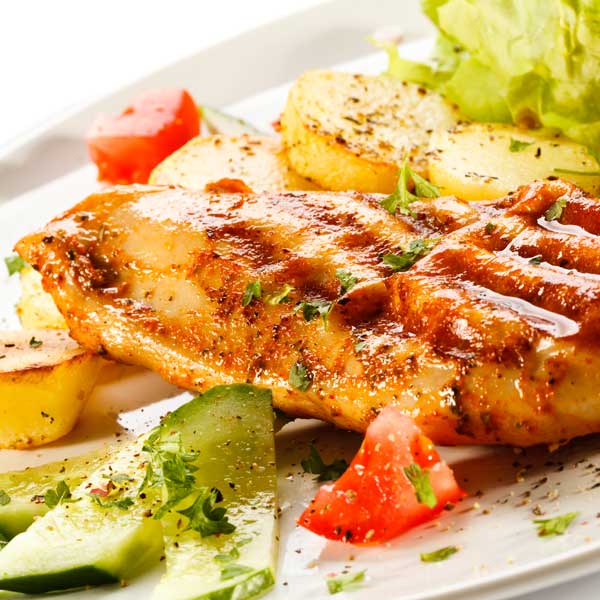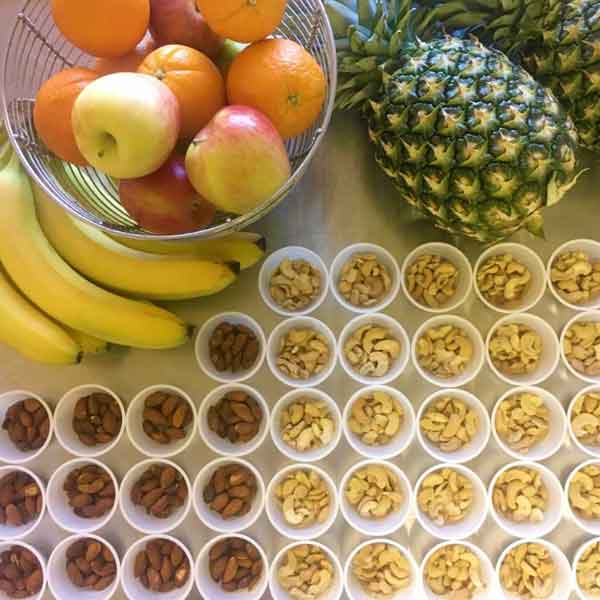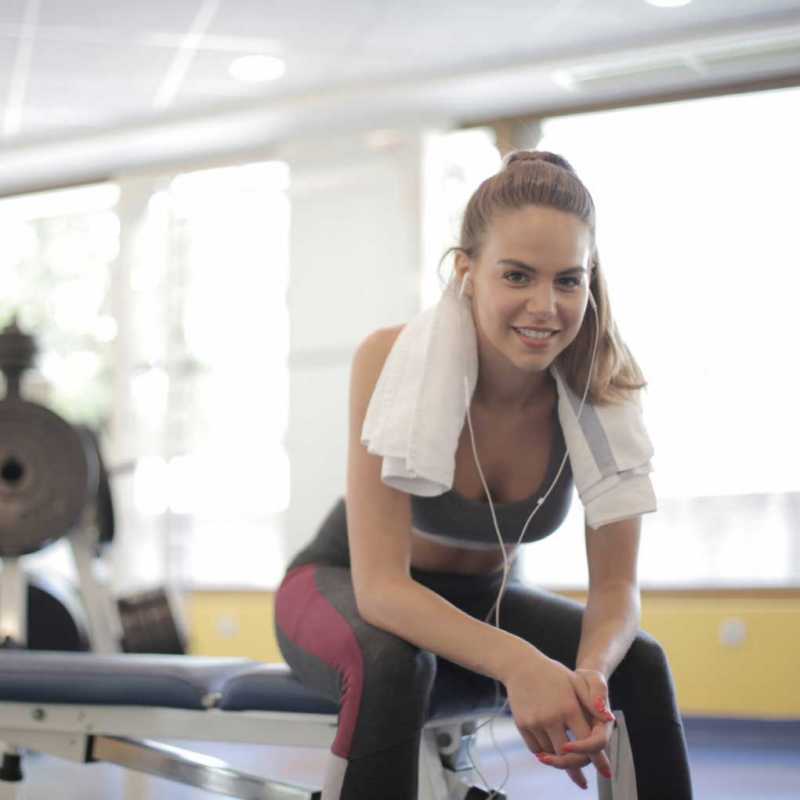Optimize Your HIIT Workouts
with Proper Nutrition
Fuel your HIIT workouts effectively with balanced nutrition. Expert tips on pre-workout snacks, post-workout meals, and hydration for peak performance and recovery.
Understanding the Role of Nutrition in HIIT
High-Intensity Interval Training (HIIT) is a powerful workout method that alternates between intense bursts of activity and short recovery periods. To maximize the benefits of HIIT, proper nutrition is essential. The right balance of macronutrients—carbohydrates, proteins, and fats—can significantly enhance your performance and recovery. Let's dive into the key aspects of nutrition before, during, and after your HIIT sessions.
Pre-Workout Nutrition
Before a HIIT session, it's important to fuel your body with a combination of carbohydrates and protein. Carbohydrates provide the energy needed for high-intensity efforts, while protein supports muscle repair and growth. The timing and composition of your pre-workout meal can make a big difference in your performance.
Best Pre-Workout Snacks for HIIT
- Banana with Peanut Butter
A banana offers quick-digesting carbs, and peanut butter provides a bit of protein and healthy fats. - Small Smoothie
Blend a mix of fruits, a scoop of protein powder, and a splash of almond milk for a refreshing and energizing snack. - Greek Yogurt with Berries
Greek yogurt is rich in protein, and berries add a dose of antioxidants and carbohydrates. - Oatmeal with Honey and Almonds
Oatmeal provides complex carbs for sustained energy, while honey and almonds add sweetness and protein.
Consume these snacks about 30-60 minutes before your workout to allow for digestion and optimal energy levels.
Post-Workout Meals
After a HIIT workout, your body needs to replenish glycogen stores and repair muscle tissues. A balanced post-workout meal with lean protein, complex carbohydrates, and healthy fats is ideal for recovery.
Post-HIIT Recovery Meals
- Grilled Chicken with Quinoa and Vegetables
This meal provides lean protein, complex carbs, and a variety of vitamins and minerals from the vegetables. - Protein Shake with Fruit and Nuts
A quick and convenient option, combining protein powder with fruits like berries or bananas and a handful of nuts for healthy fats. - Salmon with Sweet Potato and Asparagus
Salmon is rich in omega-3 fatty acids and protein, while sweet potatoes and asparagus offer complex carbs and fiber. - Turkey and Avocado Wrap
A whole-grain wrap filled with turkey, avocado, and spinach provides a good balance of protein, healthy fats, and carbs.
Try to eat your post-workout meal within 30-60 minutes after your HIIT session to optimize muscle recovery and replenish energy stores.
Hydration Tips
Hydration is crucial during HIIT workouts, as the intense nature of these sessions can lead to significant fluid loss through sweat. Proper hydration supports muscle function, helps regulate body temperature, and prevents fatigue.
How to Stay Hydrated During HIIT Workouts
- Before Workout: Drink at least 16-20 ounces of water 2-3 hours before your workout.
- During Workout: Aim to drink 7-10 ounces of water every 10-20 minutes during exercise.
- After Workout: Rehydrate with 16-24 ounces of water for every pound of body weight lost during your workout.
For longer or particularly intense sessions, consider a sports drink to replenish electrolytes such as sodium, potassium, and magnesium. Electrolytes play a key role in maintaining fluid balance, muscle contraction, and overall performance.
Importance of Macronutrients
Macronutrients—carbohydrates, proteins, and fats—are the foundation of your diet and play crucial roles in HIIT performance and recovery.
Carbohydrates
Carbohydrates are the primary source of energy during high-intensity exercise. They are stored in muscles and the liver as glycogen, which is rapidly mobilized during HIIT. Including complex carbohydrates in your diet, such as whole grains, fruits, and vegetables, ensures a steady supply of energy for your workouts.
Proteins
Protein is essential for muscle repair and growth. Consuming adequate protein helps to rebuild muscle fibers that are broken down during intense exercise. Sources of high-quality protein include lean meats, dairy products, legumes, and plant-based proteins like tofu and quinoa.
Fats
Healthy fats are vital for overall health and can provide a sustained energy source for longer HIIT sessions. Focus on incorporating unsaturated fats from sources like avocados, nuts, seeds, and olive oil into your diet.
Timing of Meals Relative to Workouts
When it comes to nutrition and HIIT, timing can impact your performance and recovery. Here's a guide to meal timing relative to your workouts:
- 2-3 Hours Before Workout
Eat a balanced meal with carbohydrates, protein, and fats. This could be a chicken sandwich on whole-grain bread with a side of fruit. - 30-60 Minutes Before Workout
Have a light snack that includes easily digestible carbs and a small amount of protein, such as a banana with peanut butter. - Within 30-60 Minutes After Workout
Consume a meal or snack that combines protein and carbohydrates to support muscle recovery and replenish glycogen stores.
Experience the Power of HIIT at Weight Crafters
At Weight Crafters, we incorporate high intensity interval training extensively in our fitness retreat and weight loss camp programs to help you achieve your fitness goals efficiently. Our provided meals and snacks are perfectly balanced and formulated to complement your HIIT workouts, ensuring you get the right nutrients to fuel your body and support recovery.
Join us at Weight Crafters to experience the transformative power of HIIT. Our expert team is here to guide you every step of the way, providing you with the tools and knowledge to succeed.
Let's get started on your fitness journey together!










